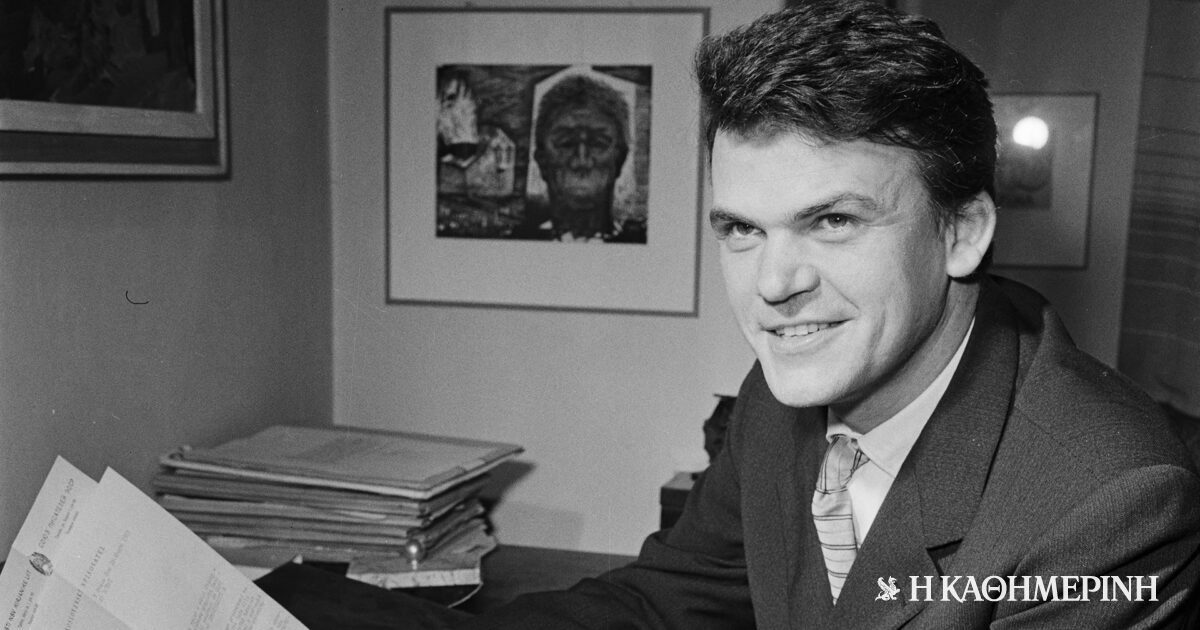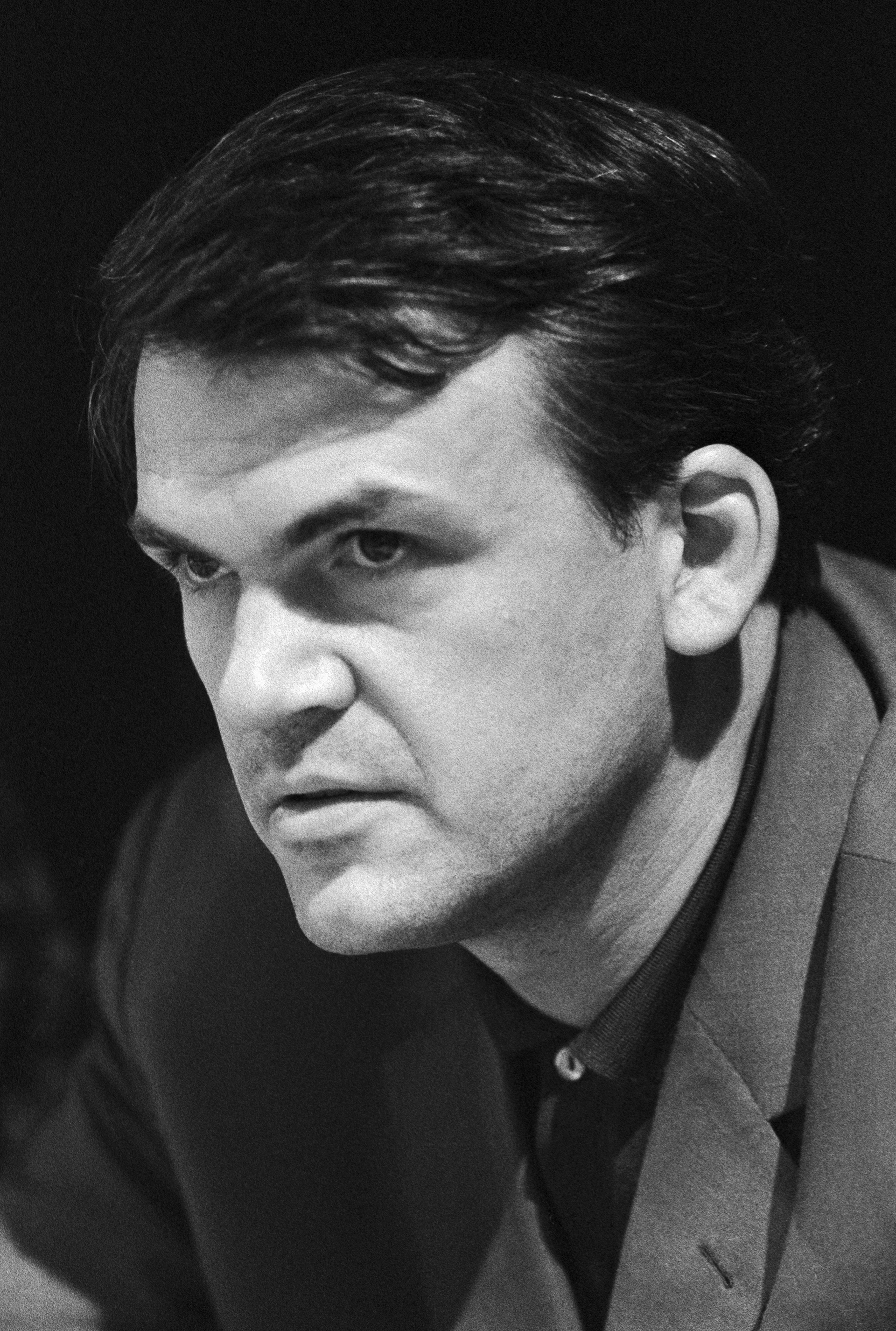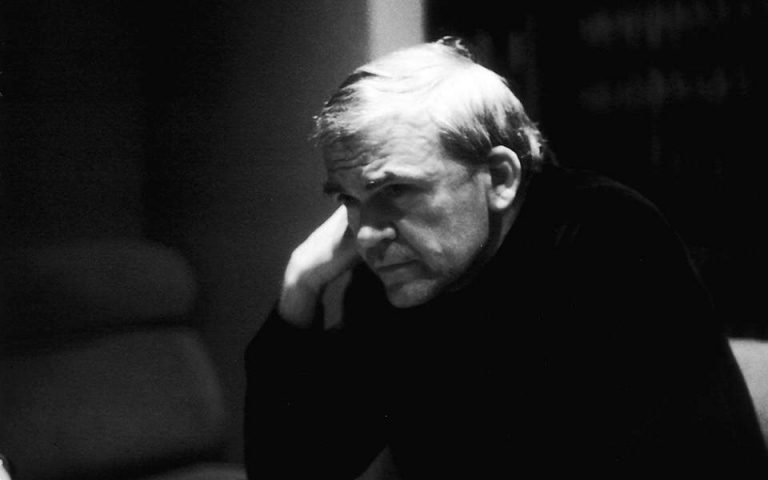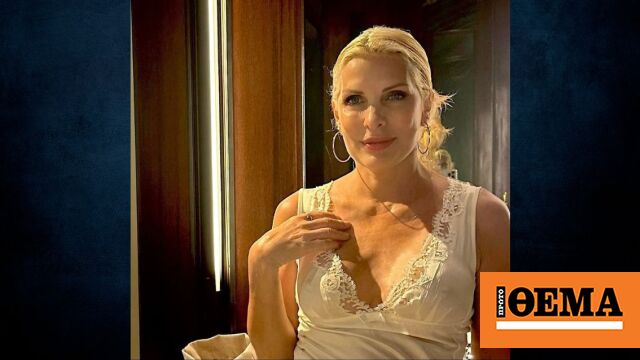
Thousands left. Among those who chose to stay and resist after the Prague Spring Vaclav Havelplaywright, political prisoner, pioneer of the Velvet Revolution of 1989 and later president, first of Czechoslovakia and later of the Czech Republic.
This development is what we “legalized” Milan Kundera In his former homeland for the first time after twenty years. His books were again available to the public. However, they turned their backs on them. Kundera ran out of sympathy. It is said that only 10,000 copies of the legendary “The Unbearable Lightness of Being” were sold, a book that eventually became a reason for exclusion and self-exile.
Many Czechs saw him as a person Take the easy way outBy abandoning his comrades at a crucial national juncture. Indeed, they were soon convinced by a Czech magazine report in 2008 that claimed the Franco-Czech writer had been an informant as a student and had turned over Western agent, Miroslav Dvoracek — who had served 14 years in prison and a gulag — to the Czechoslovak police, something Kundera himself denies.
He was then supported by Vaclav Havel, Nobel Prize-winning writers such as J. M.
Czech – not
Like millions of his compatriots, he believed in communism, but he also abandoned it. He gave up military service, but wrote politically. He was “rehabilitated” in the Czech Republic, but lived and died in France.
“Life,” as he describes it in his book The Art of the Novel (1986), “is a trap we have always known: we are born without being asked, we are trapped in a body we never chose, and we die fatally.”
Milan Kundera, one of the greatest representatives of world literature, lived from within the historical events of the middle of the last century and, despite being in self-exile, suffered the price of them.
He was removed, expelled, deprived of the creative freedom a writer should have, and finally left the country of his birth and education.
«Old mistakes were corrected and new ones were made. Factories were nationalized, thousands were imprisoned, health was free, tobacconists watched their shops confiscated, old workers saw for the first time mansions confiscated and smiles of happiness on our faces,” he later wrote in his book “The Book of Laughter and Oblivion.”
He believed in the socialist vision, but was to be expelled from the Communist Party. The first expulsion came in 1950, due to his criticism of the communist regime, only to rejoin in 1956. Indeed, this development and its aftermath inspired the central plot of his first novel, The Funny of 1967, a work of black humor where, Through a joke about Trotsky written by a student to impress a girlKundera makes fun of the totalitarianism of existing socialism, and there are consequences.
As if through historical satire and in support of the fact that history repeats itself, the book that started from the personal experience of exclusion became a reason for The second and final deletion from the partyin 1970, for a new, more dangerous cycle of elimination and finally his permanent escape.
In a world built on inviolable certainty, the novel is dead. Totalitarianism, whether based on Marx, Islam or something else, is a world of answers, not questions. The novel has no place there. Anyway, it seems to me that people all over the world today would rather judge than understand. to answer rather than ask. Thus, the voice of the novel is barely audible in the tumultuous nonsense of human certainty.

However, he was allowed to continue his studies, and in 1952 he graduated from the Academy of Fine Arts in Prague, and was later appointed to the faculty as professor of world literature, among whose students was the director Milos Forman.
the second deletion from the party, She also “hid” him as a person. Separated from all shades of social life, it was creatively leveled. In the following years he earned money as a jazz musician and laborer. Sometimes he wrote under pseudonyms or with the names of his friends, even the signs of the zodiac that he began writing in a journal.
“Tell employers that the editor is one A brilliant nuclear physicist who does not want to reveal his name for fear of ridicule of his colleagues,” he allegedly told the editor-in-chief.
As fate would have it, the authorities learned the true identity of the “brilliant nuclear physicist – astrologer” and so Kundera realized in a bitter but clear way that he could no longer protect himself, nor could his friends who had supported him. Hope is lost in his homeland.
And so he left.
In 1981, after six years in France, he was granted French citizenship.
Among those who supported him was his friend and fellow American, Philip Roth He published his texts and books in the series “Voices from the Other Europe”. However, it was issuedThe unbearable lightness of beingin 1984, making him an international superstar.
Set in turbulent Prague in the year 68, the novel deals with the story of two couples who suffer historical political developments, but also personal betrayals, trying to balance the fine line between freedom and responsibility. Philip Kaufman’s adaptation of the book to the big screen, starring Daniel Day-Lewis and Juliette Binoche, catapulted Kundera’s star into the literary stratosphere.
Inspiration and inspiration
«Characters are not born of a woman, like people. They are born from a situation, a sentence, a metaphor that contains an elementary human opportunity.” “The characters in my novels are my unrealized potential. That is why they frighten and fascinate me in equal measure.”

“From an early age I read Baudelaire, Rimbaud, Apollinaire, Breton, Cocteau, Bataille and Ionesco and admired French Surrealism,” he revealed in an interview in the literary magazine Salmagundi in 1987.
And it wasn’t just the French who were inspired by this. He himself admitted that he drew inspiration from Renaissance authors such as Focaccio, Rabelais, Diderot and perhaps more Cervantes, but also contemporaries such as Witold Gombrowicz, Hermann Broch, Franz Kafka and Martin Heidegger.
Through the trauma of communist Czechoslovakia, he wrote in his book Betrayed Testaments, he saw The novel as “perspective, wisdom, position—a position that excludes identification with any politician.”, religion, belief, moral belief, group. A conscious, stubborn, angry unidentification, which counts not as avoidance or passivity but as resistance, provocation, rebellion.”
proverbial Satirical, but also poetic, with subtle humor and fuzzy prose And solemnHe wrote novels as well as short stories, essays and plays.
In The Book of Laughter and Forgetting, though focusing on the Soviet invasion of Czechoslovakia in 1968, in the seven standard stories the author deals with human paradoxLike the cruelty of laughter and the bitterness of sex while ironing it Humankind’s lost ability to remember the past Or seriously think about the future.
Referring to the former Chilean leader, he wrote, “Allende’s assassination quickly overshadowed the memory of the Russian invasion of Bohemia. The bloody massacre in Bangladesh caused Allende to be forgotten. The noise of war in the Sinai drowned out the sighs of Bangladesh. The massacres in Cambodia led to the forgetfulness of Sinai and so on and so on until everyone forgets everything.” something “.
Since the year 2000 and for a full 14 years, his famous name remained in obscurity, until he reappeared with his new novel, which was to be his last. “Feast of Insignificance”.
He has repeatedly stated that he is a novelist rather than a politically motivated writer. From the 1980s onwards he was less and less involved in Czech politics. Indeed, in 1980 he expressed his disappointment when Western critics compared him to political writers such as the Russian Alexander Solzhenitsyn or the German Ginder Grass.
“It is not enough to create political art to criticize the system. This is the worst that can happen. Art and literature lose their value when they turn into propaganda, whether communist or anti-communistHe told The Christian Science Monitor in 1981.
After 40 years in exile in Paris, the 90-year-old Kundera and his wife, Vera, regained their Czech citizenship in 2019, a month after meeting then-Prime Minister Andrej Babis.
between two, Kundera returned to Prague, albeit rarely and always in secret. According to an urban legend, he happened to be met on the street by acquaintances disguised as a monk or with a fake beard. To anyone who has the guts to talk to him, legend has it,” Kundera replies.I’m sorry, I’m not what you think».

. “Certified social media geek. Passionate webaholic. Unapologetic music specialist. Food ninja.”





More Stories
Eleni Minegaki: her image in the mirror and audience comments
Your horoscope today 02/05: It is normal for you to change
EXIT SPOILER SURVIVOR 1/5: CLOSED! This is the fourth candidate to leave!